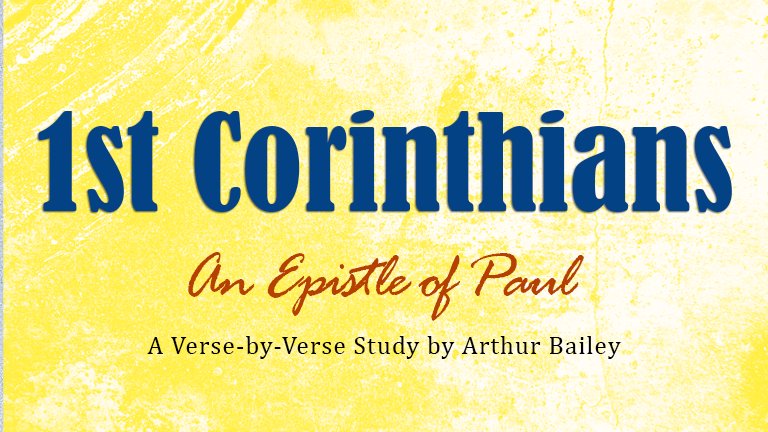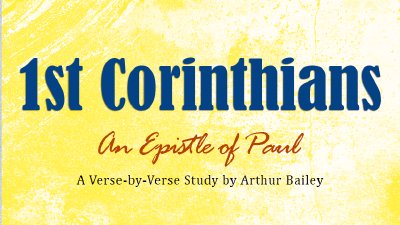The Greeks of Corinth took great pride in their philosophy and wisdom as did Greeks throughout Greece. The Greek culture and mindset has influenced people groups and cultures around the world unlike any other culture. Paul’s observations of the Greeks and their devotions to deities and gods became obvious very quickly as he pondered on how to present the message of Messiah, a message that would be viewed as foolishness to the Greeks.

The Foolishness of God
1st Corinthians 1:18-31
February 24, 2024 • Arthur Bailey • 1 Corinthians 1:18–31
Lessons Learned from Israel’s History
May 11, 2024 • Arthur Bailey • 1 Corinthians 10
According to Acts 18:11, Paul spent a year and a half in Corinth “teaching them the Word of God”. At that time there were no New Testament writings. Therefore Paul taught from the Law, the Prophets, and the Historical Writings of the Tanakh/Old Testament. In this portion of Paul’s letter, he focused on the lessons the Corinthians should learn from Israel’s history and how to apply those lessons in their lives and in ours.
Was Paul an Apostle?
May 4, 2024 • Arthur Bailey • 1 Corinthians 9
Paul’s second letter to the Corinthian assembly, referred to as 1st Corinthians by theologians, was a response to concerns and questions the Brethren had dealing with issues they were experiencing as a newly formed community. Apparently, Paul’s Apostleship was being challenged or called into question by some in the community whereby Paul attempts to bring clarification or justification to his calling as an Apostle in order to put the matter to rest.
Food and Idols
April 27, 2024 • Arthur Bailey • 1 Corinthians 8
The opening phrases of YeHoVaH’s communication to the newly formed Nation of Israel, via the first six verses of the Ten Commandments, dealt with the issues of other gods, graven images, and idol worship. Millenniums later, Paul is asked about the issue of eating meat sacrificed to idols and how the newly formed Corinthian community in Yeshua should respond to prevailing idolatry in the Greek city of Corinth.





